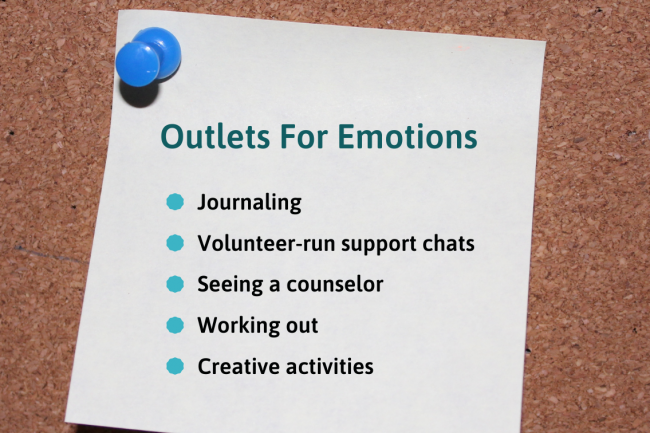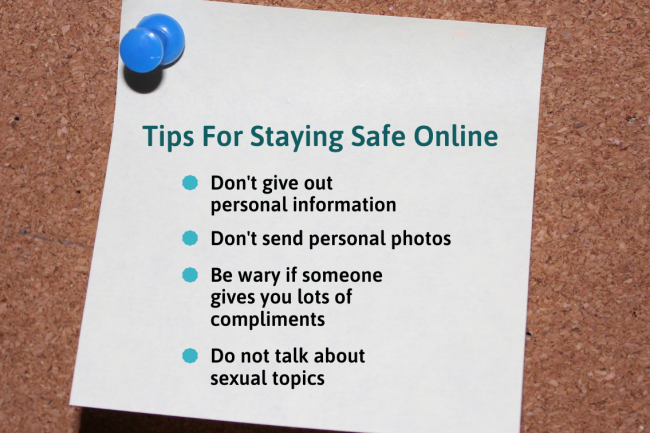Making friends as a teenager isn’t that different from making friends at any other point in your life, but it does present some unique challenges.
As we enter puberty, we tend to enter a phase of self-discovery. People often change the way they dress or have different hobbies. A friend you used to bond with over shared interests may develop new hobbies that are different from yours. They may show a desire to become popular and try to change themselves to fit in with others.
Dynamics may also change as people start to figure out their sexuality and possibly become interested in romance and dating.
While you no longer feel like a child, as a teenager, you aren’t yet an adult. The adults around you may not take you seriously, and you still have limitations. You may feel like you don’t have enough freedom. You can’t yet live by yourself, you don’t have much money, and you may not even be able to get around by yourself.
This article will give some general guidelines for making friends as a teenager, give some tips for making friends at school, and some tips on how to try to make friends outside of school.
If you are a parent or relative of a teenager who needs some help on this, you might like this article on helping your teen to make friends.
Sections
- General tips for making friends
- Making friends at school
- Making friends outside of school
- Common questions
How to make friends as a teenager: General tips
While there are certain things that are unique to making friends as a teenager, a lot of the general rules for making friends apply. Making new friends is about meeting new people you can connect with and then creating situations where you enjoy each other’s company enough to want to continue meeting. You do that by improving your social skills such as listening, learning to read body language, and holding a conversation.
Here are 5 tips on how you can make friends as a teenager:
1. Stay open-minded
You probably already have ideas on who you would like to befriend. You may feel impatient or frustrated if you feel that the people who start talking to you aren’t those you’d like to be friends with.
Practice keeping an open mind when talking to people. Sometimes we misjudge people and can end up good friends with people we thought we wouldn’t like to socialize with. Even if a friendship doesn’t come out of it, every conversation can be good practice. The more conversations you’ll have with people you don’t know, the better you’ll get and the more simple it will seem.
2. Don’t overshare
When you’re a teenager, there’s usually a lot going on emotionally. Your feelings feel more intense. You may become more interested in sex, romance, and dating. You may start to become more aware of problems at home. And throughout it all, adults around you are starting to expect you to make big decisions regarding your future.
It’s normal to want to share these things with your friends. The problem is that when making new friends, sharing too much early on can overwhelm them and push them away. Also, many teenagers don’t feel equipped to deal with emotional topics.
When making new friends, make sure to keep topics reasonably light at the beginning. Give yourself time to get to know each other.
In the meantime, make sure you have other outlets for your emotional needs. Start writing in a journal. If your school has a counselor, see if you can make an appointment there. The website 7 Cups of Tea has volunteers who are trained to understand adolescent issues and can listen for free when you’re struggling.

3. Like yourself first
Many teenagers struggle with low self-esteem. Adolescence is a time when we compare ourselves to others.
It can be challenging to like ourselves when we feel lonely because there’s a tendency to internalize the feeling and think there’s something wrong with us.
Making friends is easier when we already like ourselves. When we like ourselves, rejection isn’t as painful. We also know that we have just as much to give in a friendship as gain. As a result, we become better at communicating our needs, setting boundaries, and walking away from a friendship when it isn’t working out.
To improve your self-esteem, make a habit of doing something fun every day. Try new things and give yourself positive feedback when you make an effort. Work on identifying and stopping negative self-talk. Work on maintaining hobbies and interests. Focusing on yourself will help you build better relationships.
4. Don’t befriend someone because they seem popular
Looking at the popular groups from the outside, it seems like their life is pretty good, and if you joined them, yours would be too.
But things aren’t always what they seem. Just because someone is popular doesn’t mean you’ll enjoy hanging around them.
There are things that are more important than popularity in creating a good friendship: similar values, shared hobbies or interests, and a shared sense of humor, for example. Focus on getting to know people that you truly like.
5. Adopt friendly body language
People are more likely to approach you and feel comfortable around you if your body language feels friendly and safe.
Pay attention to your body language. Are you staring at the ground or looking at people and saying hi? Do you often find yourself crossing your arms and pulling away when you’re around people? If so, make some conscious attempts to relax your body, stand up straighter, and smile.
For a more in-depth look at body language, check out our article centered on how to look more approachable and friendly.
Making friends at school
As a teen, you’re spending most of your day at school, so it’s best to try and make friends there. Your school probably has some people you have overlooked. The benefit of making school friends is that it’s easy to see them, and there are already things you know you have in common.
For a more in-depth guide, see our article on how to make friends in high school.
1. Find somebody who takes a similar route to school
If you walk to school or take the bus, notice if there’s anyone who has the same route. Going together can be a good way to get to know each other. Since you’ll be seeing each other every day, you can naturally deepen your conversation.
Knowing that the route is limited in time can also remove the pressure in making conversation because you know that at one point you will get to school and the conversation will end. Then you will have the rest of the day to reflect upon the conversation before the next one.
2. Notice people in your classes
Have you ever really looked at each person in your class? Despite seeing the same people every day, they can sometimes seem to blend together, and we don’t give them much thought. It can be easy to overlook students who are quiet or assume that we know people despite never having a proper conversation with them.
Make a point of looking at your fellow classmates and noticing details about them without judgment. Do they seem focused on what the teacher is saying? What do you think they are trying to say with their personal style?
Observing people can help you figure out who you want to befriend and what you can talk to them about. Just make sure you’re not staring!
3. Follow a classmate on social media
Adding a classmate you like on social media and posting encouraging comments on their posts can be a good way to break the ice.
Using sites and apps to get to know people can relieve some of the pressure. You have more time to respond than you would in a face-to-face conversation.
Making friends outside school
While you spend a significant amount of time at school, sometimes it’s easier to make friends outside of the school you go to. You may feel that people in your school see you in a certain way. Getting to know friends outside of school can help you feel more comfortable being yourself and build up your confidence.
Here are some ways you can meet friends outside of your high school.
1. Volunteer or get a job
Engaging in goal-orientated tasks through work and volunteering are great ways to get to know someone and become friends. You’ll also get to meet people who you won’t meet through school. They may be from a different school or a few years older or younger, but they can still be great friends.
In high school, your options for jobs and volunteering may be more limited. Some jobs that are typically open to teenagers are the fast food industry, grocery stores, and cafes. There may be an opportunity to be hired as a lifeguard at a local pool. These types of jobs will usually have you interacting with customers, so you get to practice your social skills. Volunteering options can include animal shelters, the Red Cross, and Habitat for Humanity.
You can also try to organize your own volunteering events. For example, you can reach out to your local hospitals and ask what kind of assistance they may need. Teens who are hospitalized for mental health issues often engage in art and occupational therapy, where they may make things like cards or keychains. You may offer hospital staff to help sell these crafts at your school so they can use the money raised for a special treat.
2. Look for local activities geared at teens
Your city or town may have clubs or activities for teens that are organized by the municipality or local organizations. Some youth programs are geared toward helping teens build skills like leadership. Other activities you may be interested in trying are martial arts or art classes. Attend these activities consistently, so you can start to recognize and get to know other regulars.
3. Hang out where other teens go
To make new friends, you need to put yourself out there. Go to a skate park, basketball courts, or other places where teenagers in your area may spend their time. Say hi to people and try to get involved if there are activities you may be interested in.
4. Find friends online
Joining online groups and forums can help you find meaningful and safe connections. Talking to people over text can help you feel more comfortable opening up. For example, the teenager subreddit has a moderated Discord chat room where teenagers can chat about everything from school to movies over text or voice.
To stay safe online, remember to be careful when you talk to people you don’t know online. Don’t send pictures or give out personal information such as your address. Refrain from talking about sex and be wary if someone is giving you a lot of compliments very quickly (such as “I’ve never talked to someone as special as you” or saying that they’re falling in love with you).

5. Meet friends of friends
Let your friends know that you’re looking to meet new friends. They may invite you to join when they are meeting up with a friend group.
If you’re spending most of your time with one person who is your best friend, you can try to meet new people together by trying out new clubs, events, or activities. Keep an open mind, though. You might get along with someone your best friend doesn’t like or vice versa. Don’t let that stop you from investing in these friendships.
Common questions
Why is it so hard to make friends as a teenager?
It’s hard to make friends as a teenager because adolescence is a time when people go through many changes and often feel insecure. Teenagers are often trying to figure out who they are, and that raises questions regarding the types of friendships they want.
Is it normal for a teenager to not have friends?
Many adults reflect on their teenage years and express they didn’t have friends or felt painfully shy. It’s normal to feel like an outsider during the adolescent years.
Why do I have no friends?
Shyness, social anxiety, depression, autism, and low self-esteem are common reasons for having no friends. You may need to strengthen social skills such as self-awareness, keeping up with good hygiene, and making interesting conversations.
Does shyness go away with age?
While some people find that their shyness decreases with age, for others, shyness remains relatively stable or even increases.[1] Shyness is not a negative trait in itself but may lead to social anxiety and distress, particularly in those who are highly sociable but also very shy.[2]
Is shyness attractive?
In some cases, yes. Some people are attracted to shyness because they may associate it with positive traits such as sensitivity, humility, and depth.
You might also be interested in this article on making friends when you’re shy.









